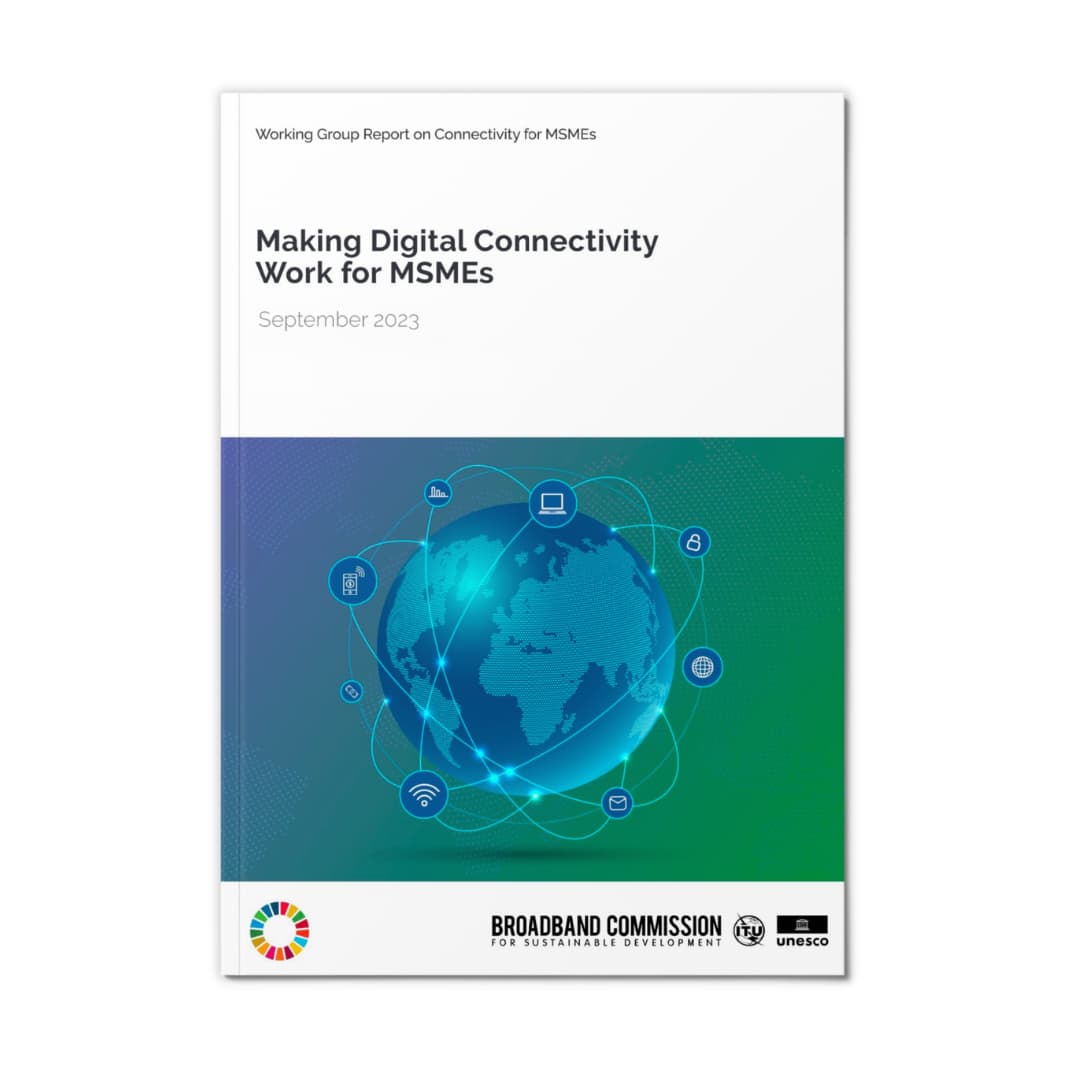The ITU/UNESCO Broadband Commission
for Sustainable Development
(2010-2025)
Established in 2010 by ITU, UNESCO, H.E. President Paul Kagame of Rwanda, and Mr. Carlos Slim Helu of Mexico, the Broadband Commission elevated the importance of broadband on the international policy agenda.
After fifteen years of advancing broadband connectivity through multistakeholder partnerships and advocacy, the Broadband Commission’s strategic framework, the Broadband Advocacy Targets, reached its expiration at the end of 2025.
The Commission set a valuable precedent for the importance of collaborative work to connect the unconnected. With over 100 knowledge products and 35+ multistakeholder Working Groups, the Commission issued more than 70 practical policy recommendations published across 15 editions of the annual flagship State of Broadband report.
We thank the dedicated Commissioners, External Experts, donors, our many partners and the Secretariat team.
Read the full message here.
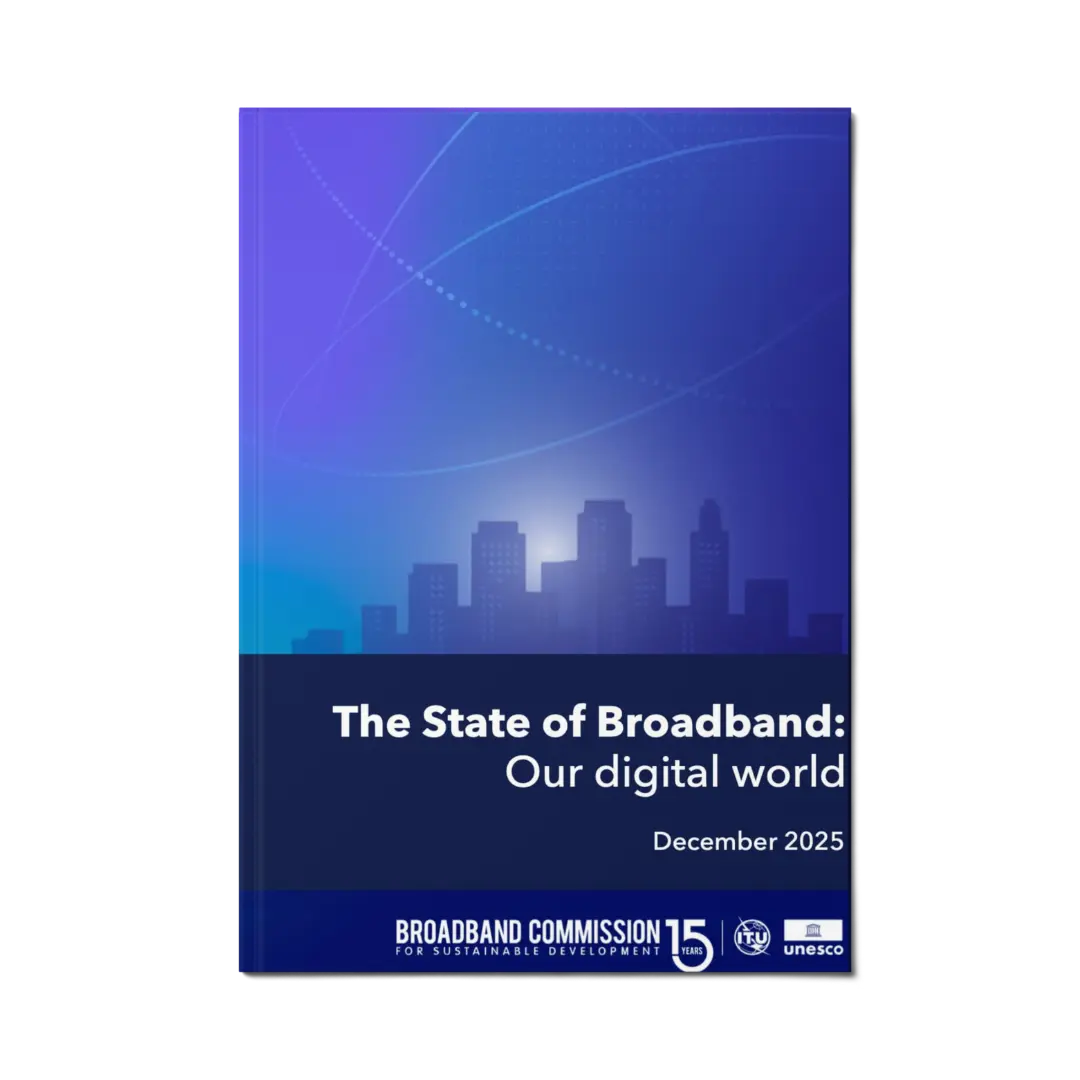
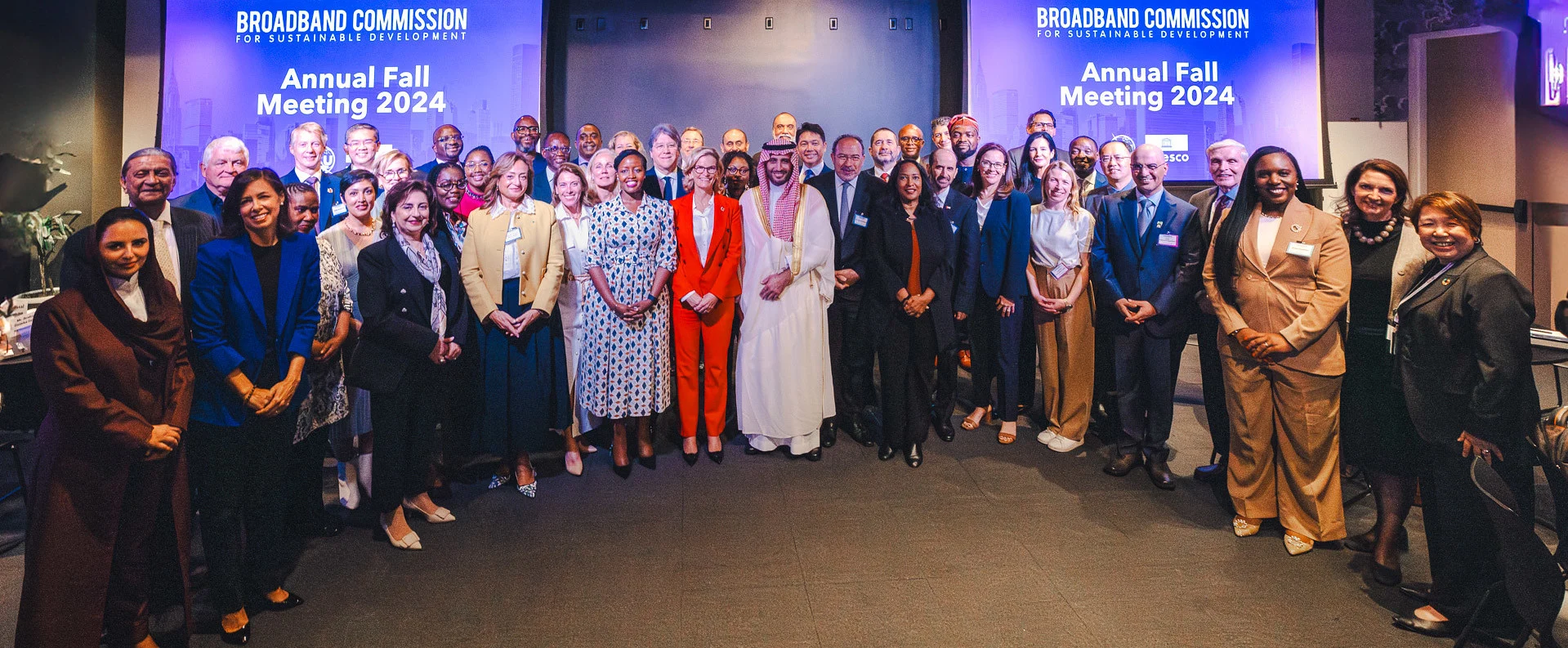
Our Commissioners
Over the course of its mandate, the Commission was supported by more than 170 Commissioners, senior leaders from government, the private sector, civil society, and international organizations, who engaged in high-level advocacy and fostered cross-sector partnerships.

Our Commissioners
Over the course of its mandate, the Commission was supported by more than 170 Commissioners, senior leaders from government, the private sector, civil society, and international organizations, who engaged in high-level advocacy and fostered cross-sector partnerships.
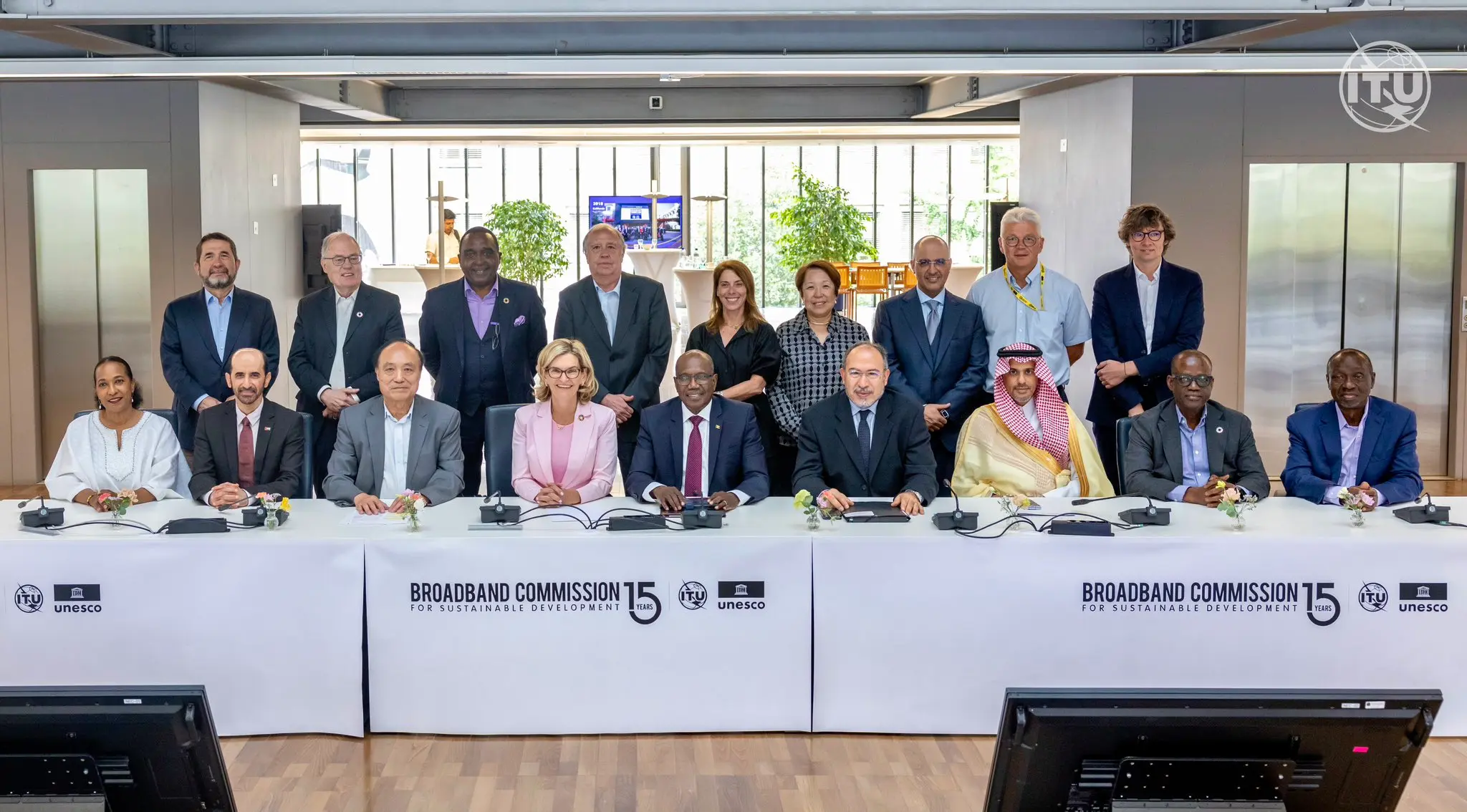
The State of Broadband
The State of Broadband series consists of 15 editions published annually, presenting a global snapshot of broadband access, affordability, and use.
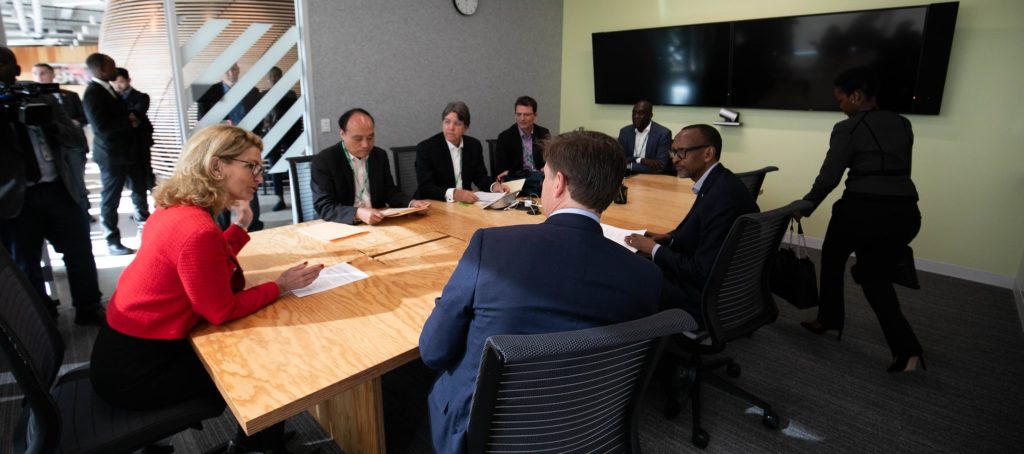
Working Groups
36 Working Groups examined key issues affecting broadband access, affordability, and use, and developed cross-sector recommendations.
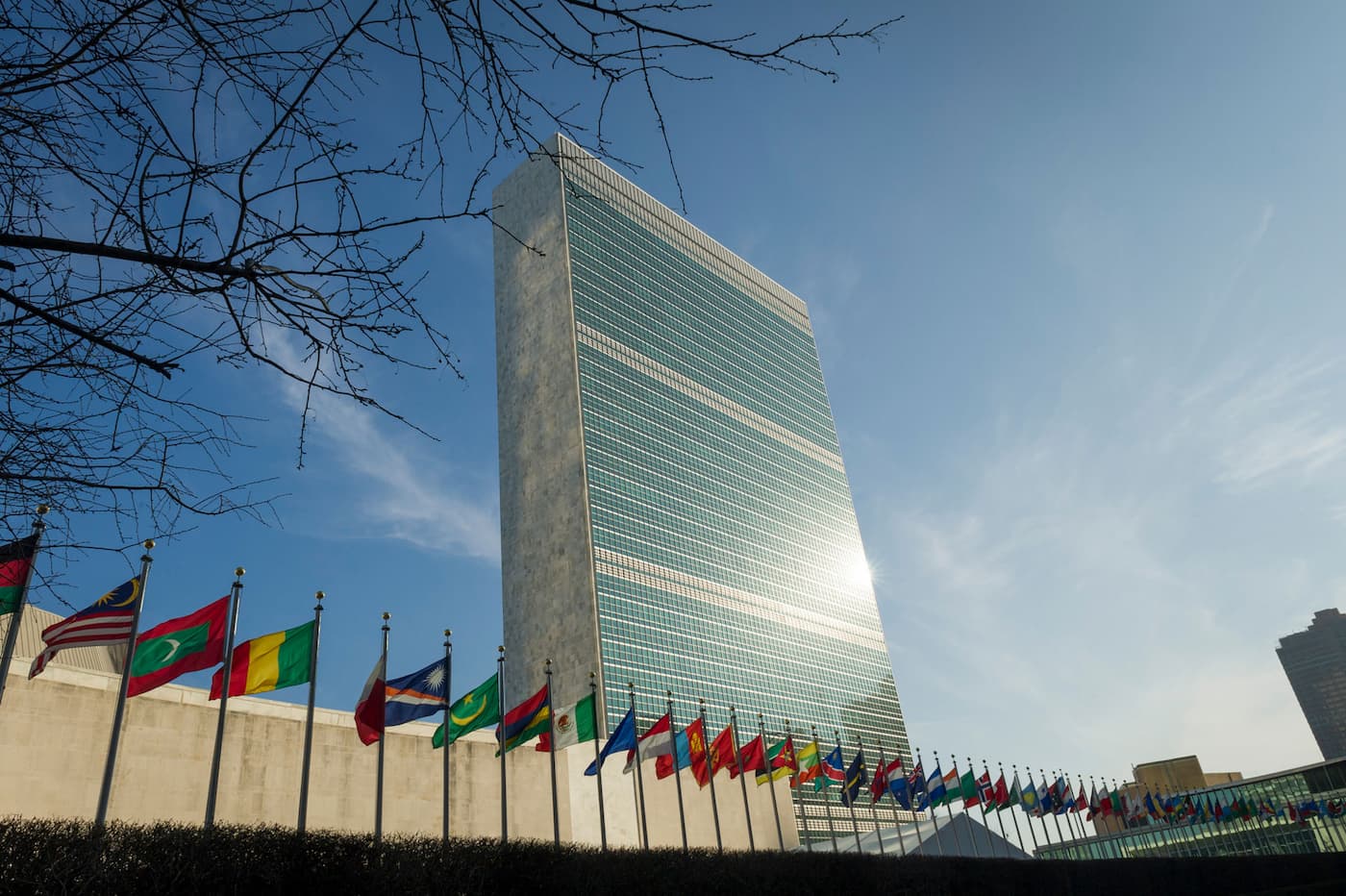
Contributions to UN processes
The Commission actively participated in key United Nations initiatives and conferences, working to elevate broadband to the forefront of the international policy agenda.
State of Broadband 2025
In its 15th anniversary year, the Broadband Commission launched a new four-part series of reports under the State of Broadband 2025. This expanded approach reflects the growing complexity of the broadband and digital ecosystem, offering focused insights into specific areas: progress toward achieving the Commission’s seven Advocacy Targets; regional developments with a spotlight on Africa; emerging satellite and non-terrestrial technologies; and the broader transformation of digital societies, including AI, data governance, and digital infrastructure.

State of Broadband 2024
The annual flagship report of the Commission offers an initial overview of how AI applications are already shaping development across various fields such as e-government, education, digital health, digital finance, and the environment, while also addressing associated risks and implications for the digital divide
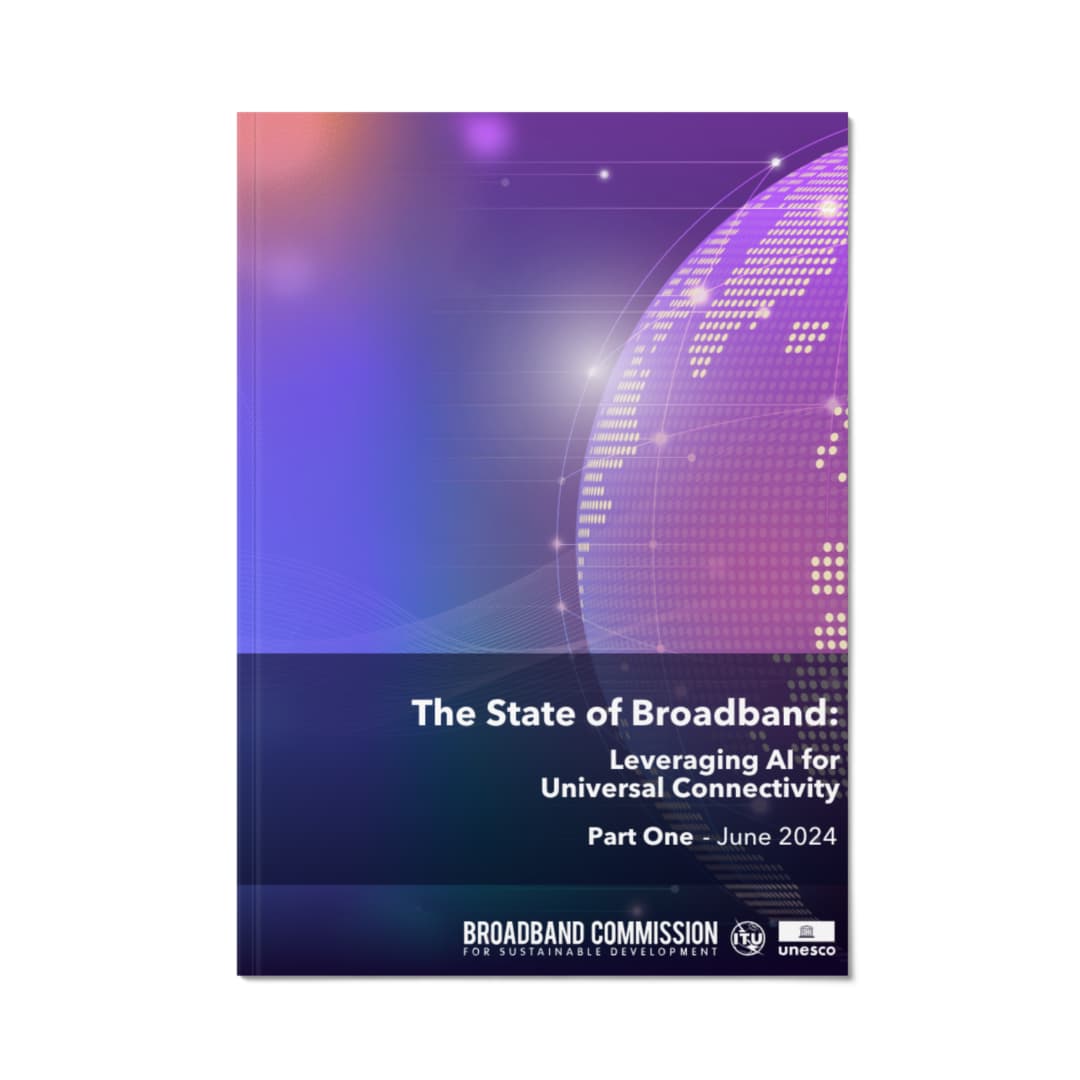
Working Group on Data for Learning
Drawing from nearly two years of discussions, the Working Group report “The Transformative Potential of Data for Learning” and its accompanying “Job Board for Data Governance and Management in the Education Sector” are global public goods that contribute to our common understanding of how to close the digital data divide and improve data practices in education.
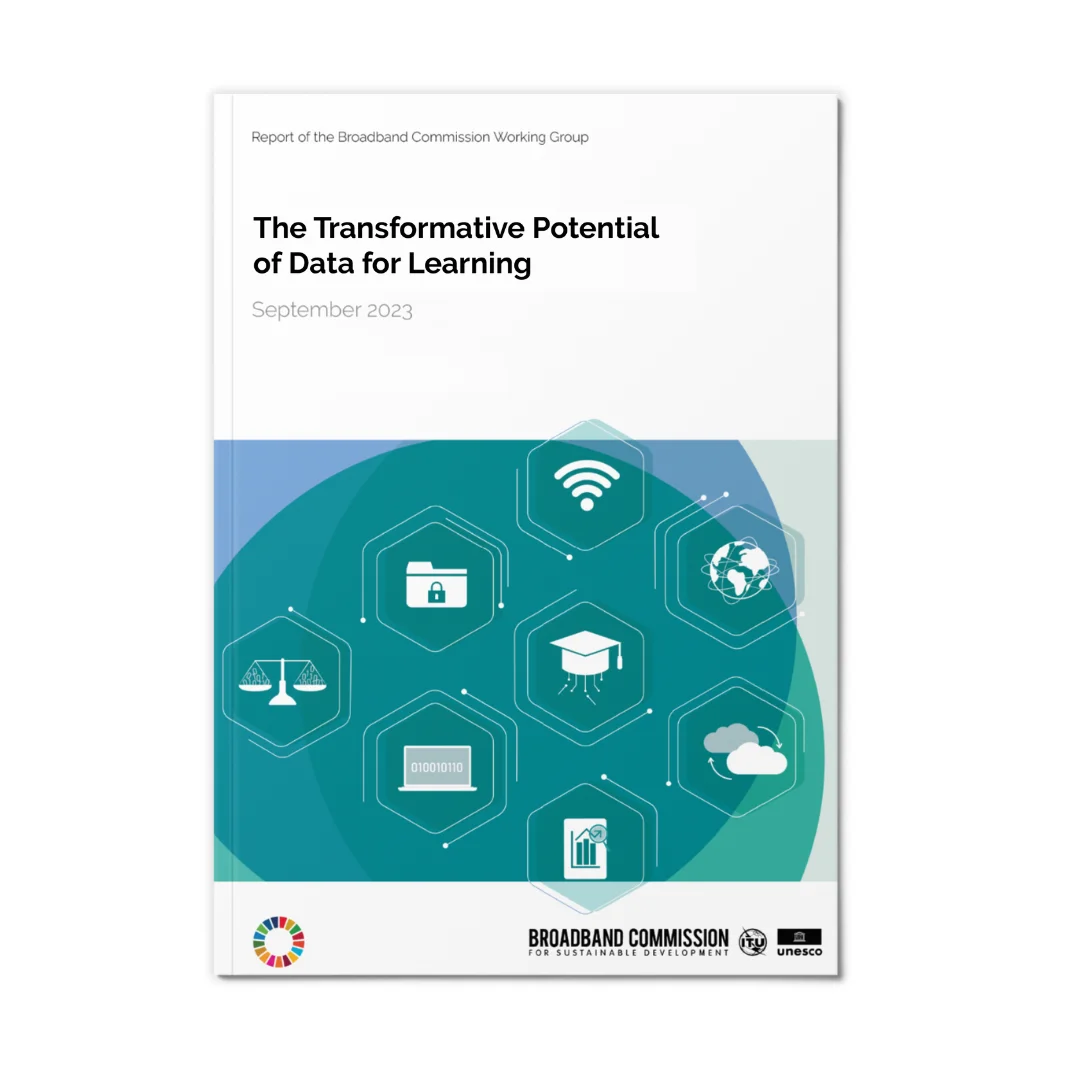
Working Group on Connectivity for MSMEs
The Working Group seeks to identify the challenges and opportunities of getting more micro-, small- and medium-sized enterprises (MSMEs) in low and middle income countries (LMICs) online and engaging in online trade. The outcome report, titled “Making Digital Connectivity Work for MSMEs,” introduces a five part framework and four core recommendations for all stakeholders to play their part in enabling MSME connectivity
